From November 3-5, 2023 International Conference on New Trends in Computational Intelligence was held at China University of Petroleum (East China). More than 140 representatives from more than 50 universities and research institutes from China, Germany, India, the Republic of Cyprus and other countries attended the conference. PengZhou , vice president of the university, and Marios Polycarpou, academician of Academia European and professor of the University of Cyprus, attended the conference and delivered speeches.
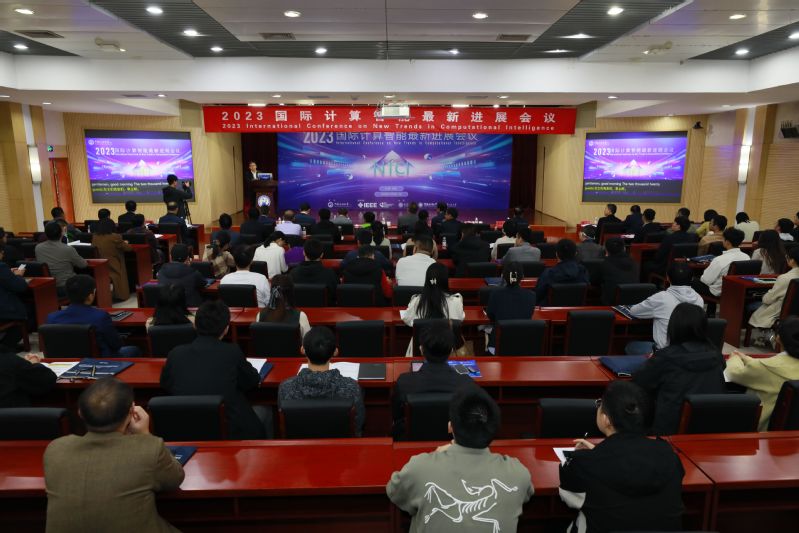
The conference was hosted by China University of Petroleum (East China), with technical support from IEEE Computational Intelligence Society, and co-organized by Dalian University of Technology, Ocean University of China, and Xi'an University of Engineering. Participants discussed the latest progress and future trends in the field of computational intelligence, including neural networks, machine learning, big data analysis and information security, and jointly promoted scientific research and technological development in the field of artificial intelligence.
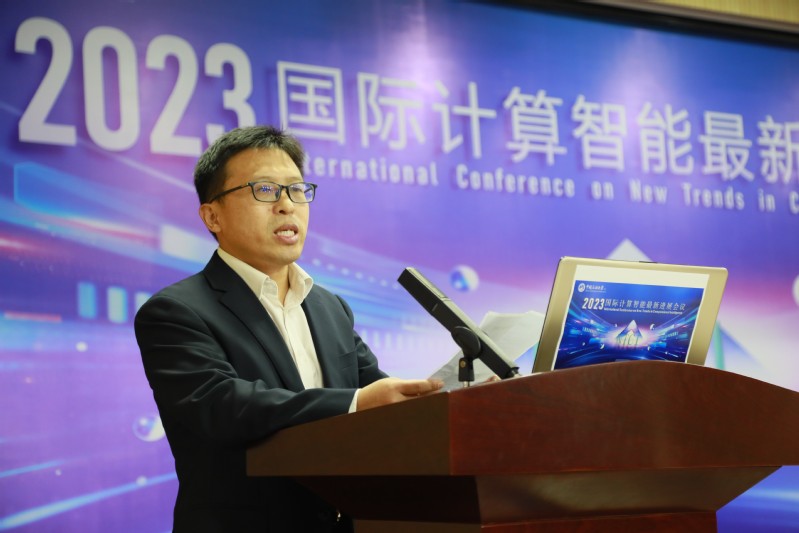
PengZhou welcomed all the experts and scholars to the university to participate in the meeting and exchange, pointing out that the International Conference on Recent Advances in Computational Intelligence intercommunicates research dynamics, builds a platform for researchers and experts and scholars in related fields to exchange and communicate, and achieves positive results in the cultivation of talents in the field of computational intelligence and the construction of platforms, etc., and will work together to promote the development of the field of computational intelligence at home and abroad and the academic exchanges between the disciplines.
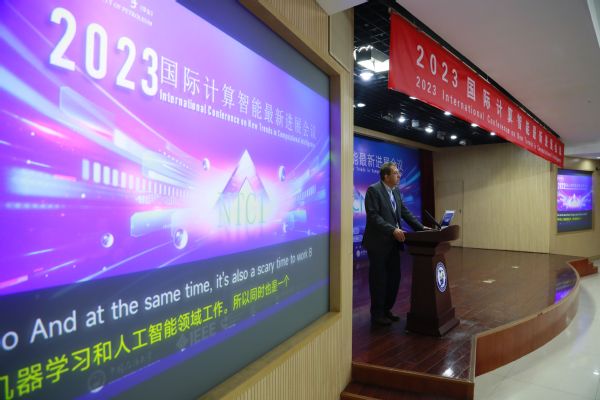
With today's rapid advances in AI, it is exciting to be able to work in the field of AI, and future research should be directed toward helping others and promoting human development. This conference provides an opportunity to focus on new areas, designs, and applications in machine learning and computational intelligence. Prof.Marios Polycarpou said in his speech.
Seven experts and scholars in the field of computational intelligence were invited to give keynote speeches, and 58 group reports were set up, in which the participating experts and scholars shared their research experiences, explored opportunities for cooperation, and enhanced the academic exchanges in the field of artificial intelligence between China and other countries.
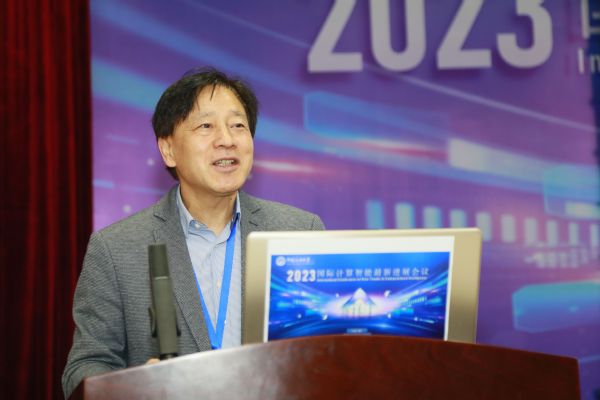
In his presentation, Yaochu Jin, member of the Academia European and professor at Bielefeld University, noted that graph neural networks in combinatorial optimization problems bring new perspectives to the fields of computer science and engineering. He presented an innovative approach to solving the multi-objective facility localization problem and proposed solutions for graph data classification and coloring, encouraging further exploration of the application of graph neural networks in combinatorial optimization.
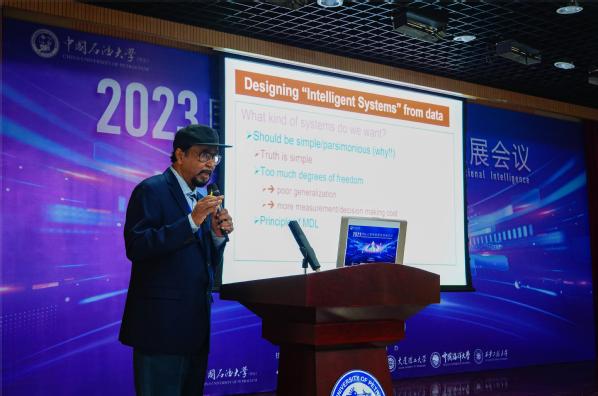
Prof. Nikhil R. Pal, Member of the Indian Academy of Engineering, Member of the Academy of Sciences, and Member of the Academy of Sciences for the Developing World, spoke on the issue of neural network interpretability, introduced the importance of interpretability in the design of intelligent systems or models, and discussed in depth how to add interpretable designs to existing neural network models, pointing out that the interpretability of intelligent models will be a research hotspot in the coming period.

Prof.Yiu-ming Cheung, IEEE Fellow, National Overseas High-level Talent and Hong Kong Baptist University, mentioned in his presentation that unbalanced data classification has become one of the hotspots in computational intelligence research. He shared the key data sensitivity loss and emphasized the important impact of unbalanced data on the classification task.
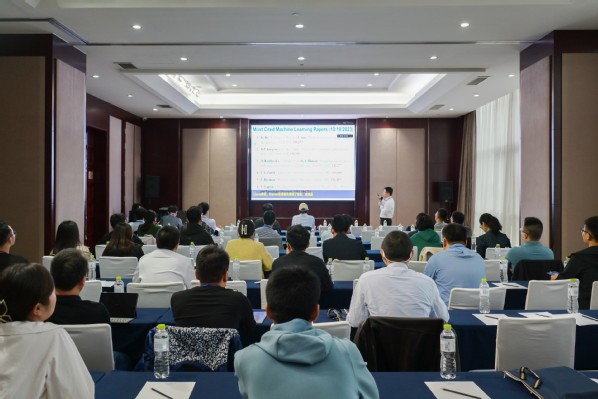
Prof. Dongrui Wu of Huazhong University of Science and Technology (HUST), IEEE Fellow and National Overseas Young High-Level Talent, shared his views on the efficient optimization of TSK fuzzy systems, and introduced in detail the challenges of TSK fuzzy systems in dealing with regression and classification problems and the corresponding solutions, including optimization strategies, high-dimensional dilemmas, and generalization performances, as well as thinking about and looking forward to the future development of TSK fuzzy systems.

Professor Kay Chen Tan, Vice President of IEEE Computational Intelligence Society (CIS), Fellow of IEEE, and Professor of The Hong Kong Polytechnic University, pointed out that large-scale multi-objective optimization problem is a challenging problem to evolve migration optimization, which combines evolution and migration learning to enhance the performance of evolution.

Prof. Yongduan Song, Academician of International Eurasian Academy of Sciences, Fellow of IEEE, and Professor of Chongqing University, pointed out that the use of neural networks combined with learning algorithms for controller design has become a mainstream direction in the field of intelligent control. He mainly discussed the typical neural network-driven design methods, pointing out that it is difficult to achieve the key problems such as the prescribed time stabilization of high-order nonlinear systems and the modeling uncertainty caused by unknown time-varying parameters.

In this conference, top researchers and practitioners in the field of Computational Intelligence gathered and exchanged views with each other on the latest research trends in neural networks, fuzzy systems, and intelligent control, and demonstrated significant advances in Computational Intelligence on different fields, which will help promote research in Computational Intelligence and its interdisciplinary frontiers. Jian Wang, co-chair of the conference and director of the Joint Laboratory of Transmedia Big Data in the College of Science, said.
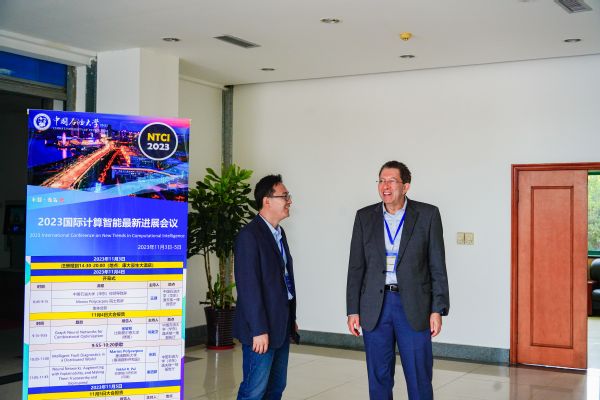
The International Conference on Recent Advances in Computational Intelligence has been held for five times so far, and there are academicians in the field of computational intelligence, Fellows of the International Institute of Electrical and Electronic Engineers (IEEE), and top experts in the field of computational intelligence from the United States, the United Kingdom, India, Australia, Turkey, Belarus, Russia, South Africa, Romania, Poland, Belgium, and other countries in the world to make invited presentations, which have received great attention from researchers in the field of computational intelligence. It has become an influential platform in the field of international computational intelligence.

Mainstream media such as People's Daily Client, Xinhua, China Education News Client, Qilu Evening News Client, Qingdao Daily Guanhai News and others paid attention to and reported on the 2023 International Conference on Recent Advances in Computational Intelligence.
[Editor:Xiangyi Ma]